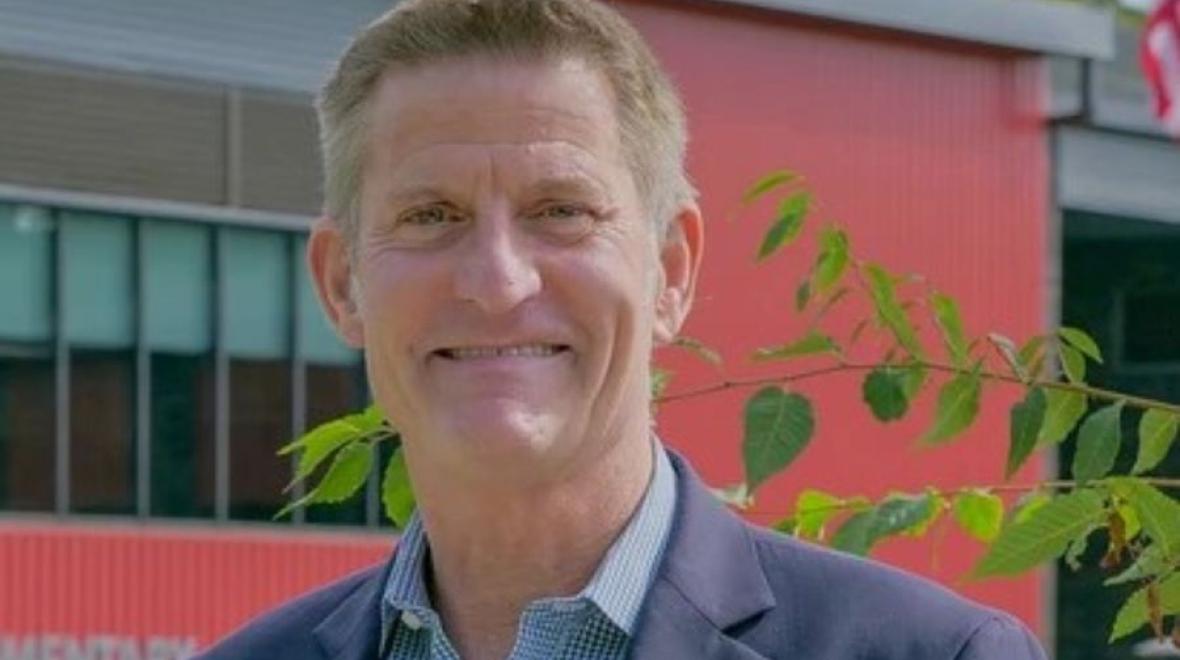
Photo:
OSPI Superintendent of Public Instruction candidate David Olson. Photo courtesy of the candidate.
2024 election prep
To help parents prepare to vote in the general election on Nov. 5, ParentMap reached out to the 2024 candidates for our State’s top education leader role to learn more about their visions for the future of Washington schools and what kind of students they were as kids.
Meet David Olson
David Olson has served on the board of Gig Harbor’s Peninsula School District since 2013. He is a retired US Navy Chief Warrant Officer and he is also a board member with the Greater Gig Harbor Foundation. Olson’s campaign emphasizes expanding the power of parents around issues such as curriculum. He has also stated that he is “committed to restoring local control to school boards.” In his role as board president of the Peninsula School District, he has expressed strong opposition to “critical race theory,” although representatives from the district have confirmed that no such curriculum is in place. Olson is endorsed by Washington State Republicans. He holds a Bachelor of Business Administration from Southern New Hampshire University.
ParentMap: How do you plan to address the mental health needs of students, especially in light of rising rates of youth anxiety and depression?
Olson: The most important thing education leaders can do to address the decline in mental health among young people is to remove cell phones from classrooms and reduce screen time overall. The evidence has been growing for years that cell phones in school are terrible for tween and teen mental health, and even worse for elementary schoolers.
By removing cellphones and social media during school hours in the Gig Harbor School District, we proved that this one action alone can reduce a host of negative impacts including cyberbullying, socially promoted violence and body image issues.
Moreover, test scores improved districtwide. The damage phones are doing to our kids’ mental health demands action.
In addition, it is important that we fully fund school counselors and increase social activities that foster a sense of belonging, such as music, sports, robotics, art, theater and building clubs. We should also work to partner with parents to address student mental health to the greatest extent possible.
PM: What strategies do you propose to address and prevent gun violence in schools and ensure the safety and security of all students and staff?
Olson: While it’s not possible to make 400 million guns disappear overnight, we can and must do more to identify students who are struggling and be vigilant about potential warning signs. Additionally, schools need to partner with parents and students to enforce existing gun safety laws such as firearm security and storage.
The recent multiple shootings at Garfield High School in Seattle, and feedback from parents in high-crime communities, all point to at least one solution we can and should implement immediately: Secure all school entrances and rehire school resource officers.
By adding or rehiring highly trained retired police officers, we can provide better security against gun violence in schools, especially in high-crime neighborhoods.
No teacher should ever have to stand between a shooter and the students. Safety officers are step one to ensuring the safety of students and staff.
Last year, as a member of the school board in the Peninsula School District, we hired former police officers to join our staff as armed school safety officers. We did this to impress upon our students, staff, and community that we take the safety of all very seriously. I absolutely will advocate and encourage all school districts across the state to consider hiring armed SSOs or partnering with local law enforcement agencies to add SROs to their campuses.
PM: What is your stance on cell phone use in schools and how do you plan to balance the benefits of technology with the need to minimize distractions?
Olson: At the beginning of the 23–24 school year, our school board/district implemented a near-total restriction on the use of cell phones in classrooms and we blocked social media on all devices including chrome books and other digital devices at the server. The Peninsula School District was a leader in the state on this issue, and now many other districts have implemented similar policies. As Superintendent of Public Instruction, I will strongly encourage all school district to do the same.
Having read [Jonathan Haidt’s] “The Anxious Generation,” I am more convinced than ever that smartphones and social media — especially in the hands of elementary and middle school students — dramatically increases their anxiety and stress, and wreaks havoc on their mental health.
I believe it is absolutely possible to strike a balance between the required and essential use of digital technology and Artificial Intelligence and the restricted use of cell phones in the classroom.
PM: What measures will you take to address the achievement gap and ensure equitable education outcomes for all students?
Olson: First, I will work with all school districts to determine what is helping and hindering them from achieving academic success. I will determine root causes as to why school districts are not achieving academic success. I will urge the state legislature to fully fund special education across the state, and I will reevaluate the ineffective OSPI transportation funding model (STARS), which places extreme burden on school districts to fund their transportation costs — including hiring school bus drivers, paying for fuel and replacing the fleet.
I will seek to remove burdensome policies and regulations from the schools and classrooms that take away critical instructional time between teachers and their students. I will strive to encourage highly experienced teachers to accept positions in struggling school districts to help lift their students up to achieve their reading, writing, math and science standards among other things. I want to encourage the state legislature to fund pay increases for all paraeducators — not just a select few as the current superintendent attempted to do earlier this year.
PM: What is your perspective on Senate Bill 5462, which was recently approved by the Washington Legislature? This bill requires that schools update the curriculum to include LGBTQ+ histories, perspectives, and contributions.
Olson: The OSPI’s role is to provide the framework, guidance, and resources to support implementation of Senate Bill 5462 by local school boards.
The law also specifies that local school boards retain the sole authority to review and approve the specific curriculum that will be used in their schools.
This division of responsibilities represents the Washington state Legislatures work to preserve local control and balance expertise with community input. The intention is for OSPI, as the state education agency, to provide the resources and expertise to develop comprehensive standards and policies. Meanwhile, local school boards can adapt these to their community’s needs and values. This allowed the law to address concerns about overreach expressed by some local officials and community members that the bill might erode local control.
PM: How would you describe the kind of student you were when you were in school?
I was an average student in high school. I enjoyed sports and making lots of friends. Both of my parents worked and my siblings and I were latchkey kids, spending many hours each day unsupervised with no parents at home. That is why I am such a strong advocate for parental involvement in their children’s education.
PM: What was the last book you read? What’s one thing that surprised you about this book?
Olson: The last book I read was “The Anxious Generation” by Jonathan Haidt. What surprised me was the amount of damage smartphones and social media cause to the mental health of puberty-aged girls. I was aware of the distractions and addictions of smartphones, but I had not seen actual data to back up my suspicions.
PM: Describe your ideal Pacific Northwest day.
I am an avid outdoorsman. I enjoy gardening, hiking, kayaking, playing outdoor sports, etc. This is such a beautiful state and anytime I can be outdoors enjoying it, it helps to relax me and reenergize me.
Methodology
We sent the same questions to the 2024 candidates via email. These are their unedited, full responses. The only changes we made were to address any typos. ParentMap wrote the bios that are included for each candidate.











